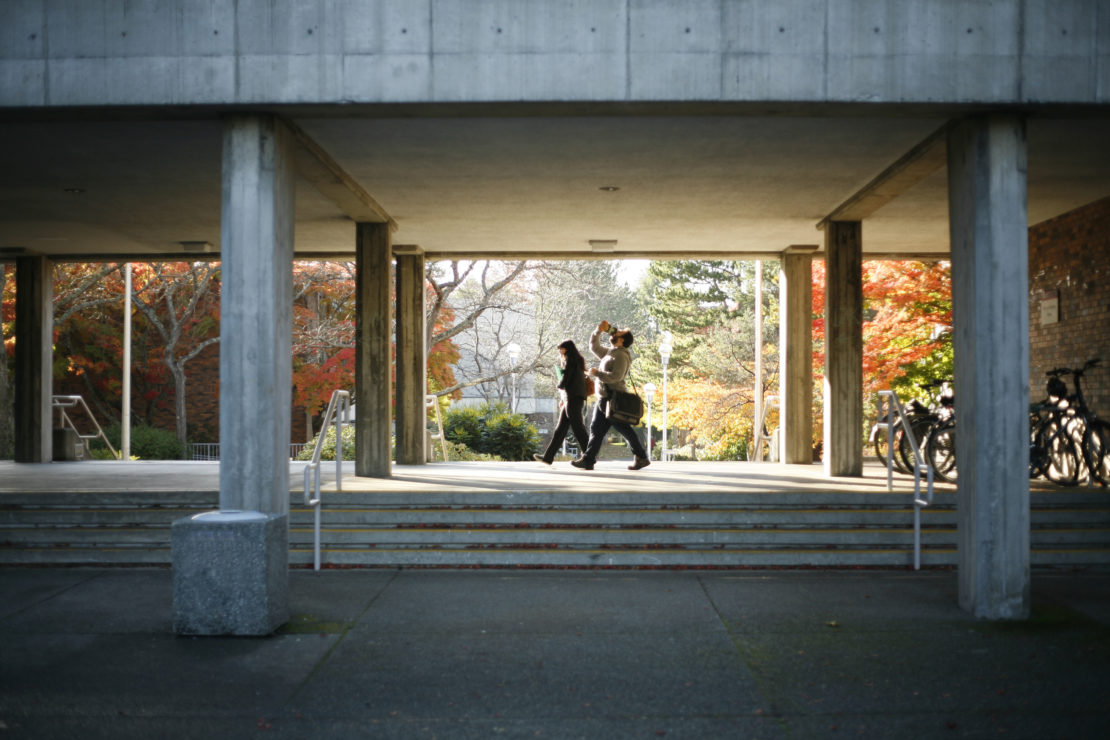President Cassels’s anti-racism training announcement does little to end systemic racism at UVic

UVic’s president, Jamie Cassels, recently announced an optional anti-racism training program for staff and students, stating that “as a university, and as individuals, we must continue the necessary work to confront racism, recognizing that many current assumptions, attitudes and habits stand in the way of change.”
While the sentiment seems sincere, I see this as nothing more than a public relations move.
This training program does not even begin to tackle the systemic racism that affects students at UVic. It is no different from what they can already offer — simply suggesting and inviting someone to take part in some type of discrimination training is not enough.
I recently graduated from UVic with an education degree. During my degree, I tried to draw attention to the discrimination I believed I was facing from some individuals within the university administration and my program. Through months of a lengthy and bureaucratic process, I attempted to speak out to various offices at UVic.
During this time and the months that followed, I diligently read through university policies and sought support and advice from offices that exist to support students in difficult situations, such as the ombudsperson and the Equity and Human Rights office (EQHR). While their support was invaluable and helped me understand how to correctly follow university procedures, my efforts to achieve fairness were hindered by complex policies.
EQHR explained to me the two options I could pursue: formal and informal resolutions. I pursued an informal resolution, taking the path of offering “bias” training to the individual I made the claim about — training which they simply declined.
While I considered pursuing the formal complaint process, I chose not to because, as a unionized employee at UVic, this individual had a greater ability to defend themselves. Had I pursued a formal complaint process, I would only have been informed whether the process found evidence of discrimination, not what measures were taken in response.
I was also afraid pursuing a formal resolution could have negative consequences for me and further delay my ability to graduate, which at the time I was having to jump through hurdles to achieve.
When I repeatedly drew attention to the discrimination I faced at UVic, my concerns were consistently dismissed by university employees. There needs to be a system of accountability and discipline so individuals are not allowed to get away with misconduct due simply to their professional stature and reputation. In one letter I received from an individual at UVic, I was told my “background was not a contributing factor” to my treatment in my program. However, claiming that a student’s “background was not a contributing factor” is not enough proof that no discrimination occurred, nor is it enough of a reason to look the other way when there are serious claims and evidence demonstrating otherwise. I was directed to deal with any claims of discrimination separately, even though I viewed discrimination as fundamental to my case.
When UVic’s Discrimination and Harrassment Policy is reviewed, it is important that they seek and take into consideration students’ feedback and experiences of discrimination within their faculties or with other university employees. The policy needs to enforce greater accountability for employees, and should mandate supervisors to consistently take an active stance on tackling discrimination and unconscious bias. This singular policy for combating professional misconduct does not go far enough, and it certainly does not ensure the learning and working environment at UVic is safe for People of Colour.
Furthermore, EQHR needs to be given more power to address issues of discrimination when they arise, and faculties need to take discrimination claims seriously.
This is only the tip of the iceberg. The Black Lives Matter movement has been trying to achieve change, tell the stories of People of Colour, and express the difficulties that they face on a daily basis.
Discrimination and racism know no borders or boundaries. It is time we stop to listen, and understand that discrimination is not only present in spoken words, but in the foundations of our institutions, and in the basis of professional attitudes towards all People of Colour.






